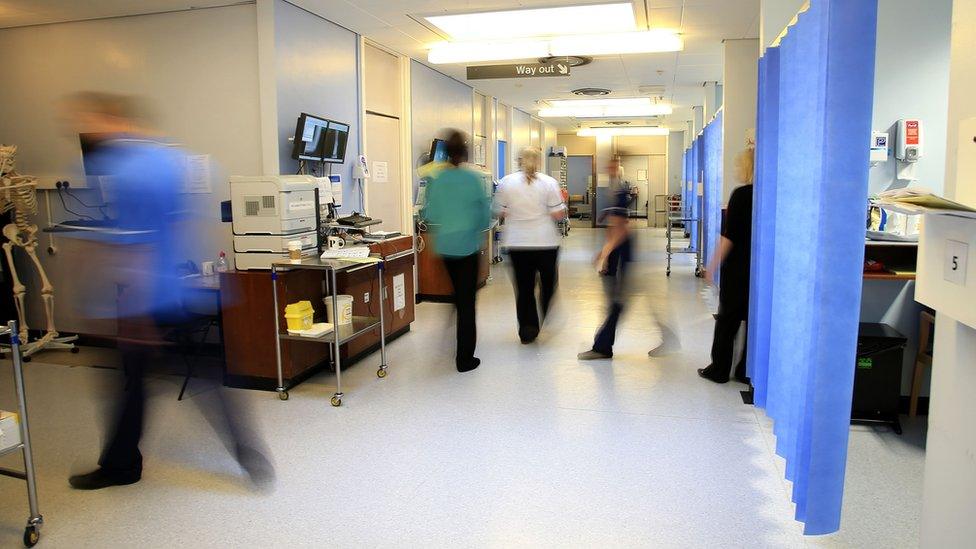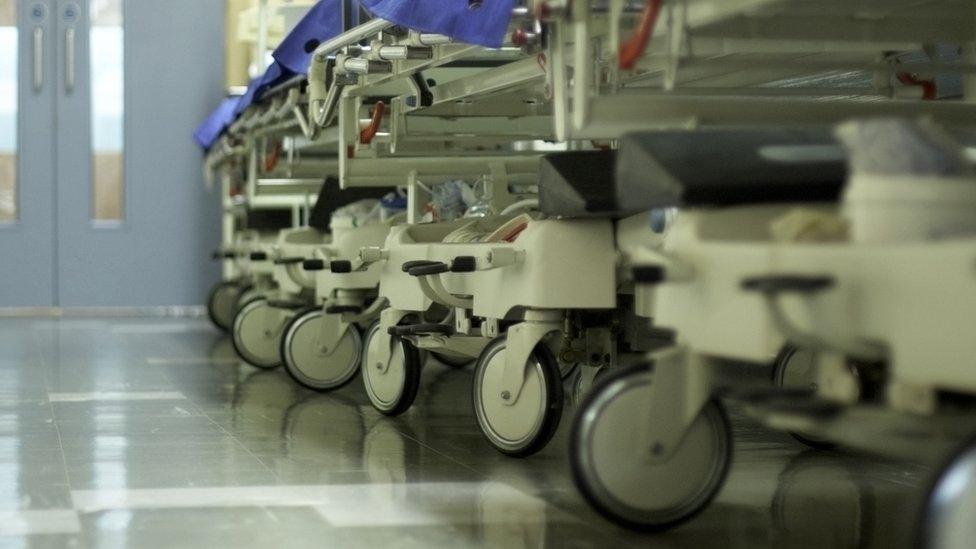NI nurses vote to strike for first time over staffing and pay
- Published

Nurses voted to take the action by an overwhelming majority with the result announced on Thursday.
Nurses in Northern Ireland have voted to strike over staffing numbers and pay disputes.
It is the first time in the Royal College of Nursing's (RCN) 103-year-history such action has been taken in the UK.
In a ballot which lasted four weeks, nurses were asked if they were willing to take industrial action, including strike action.
RCN NI director Pat Cullen said nurses had "spoken clearly".
"Nurses are no longer willing to see patients being denied the health care services to which they are entitled," she said.
"The 3,000 nursing vacancies that currently exist within Health and Social Care (the public health body in Northern Ireland) are having a detrimental impact upon patient care and adding enormous pressure to the existing nursing workforce."
Retain and recruit
Ms Cullen said pay in Northern Ireland had "fallen significantly" behind the rest of the UK.
She said this made it "difficult to recruit and retain the nurses that we desperately need".
The total number of those balloted was around 8,000, with turnout of 43.3%.
The union now has four weeks to inform employers how they plan to proceed.

Analysis - Strike will be embarrassing for election candidates:
Strike action is always significant but this one is particularly so as there is no devolved government or health minister in place for the nurses to negotiate with.
Unless a resolution is found, it will play out during an election. It is unprecedented and somewhat incredible.
So why bother? Sources tell me there is never a good time to strike and things are so bad the RCN could not backpedal.
The strike will make the doorstep chats for politicians even more awkward and for some parties equally embarrassing.
Northern Ireland is used to unique predicaments, but potentially this could prove to be the most difficult to negotiate and to settle.

A spokesperson for the Department of Health said it would be holding "detailed discussions" with the RCN and other trade unions on Friday.
"Dialogue remains the only way forward," the spokesperson said.
"With a Northern Ireland public sector pay policy now in place for 2019/2020, we plan to table a formal pay offer as soon as possible.
"The budgetary pressures across health and social care are clear for all to see.
"Despite claims to the contrary, there is no separate or untapped source of funding for pay increases."
"It all comes out of the one health budget. Every pound spent on one priority area is a pound not available for another."

There are almost 3,000 unfilled nursing posts across the system in Northern Ireland.
The department added that it accepted staff felt "deeply frustrated".
According to the RCN, nurses' pay within the health service continues to fall behind England, Scotland and Wales.
It argues that the real value of nurses' pay here has fallen by 15% over the past eight years.
Due to nursing shortages however, the cost of securing nursing staff via agencies has increased to over £32m last year.
There was a campaign of strike action over NHS pay in 2014, but while some nurses from other unions took part, the RCN did not.
- Published10 September 2018

- Published5 September 2018
